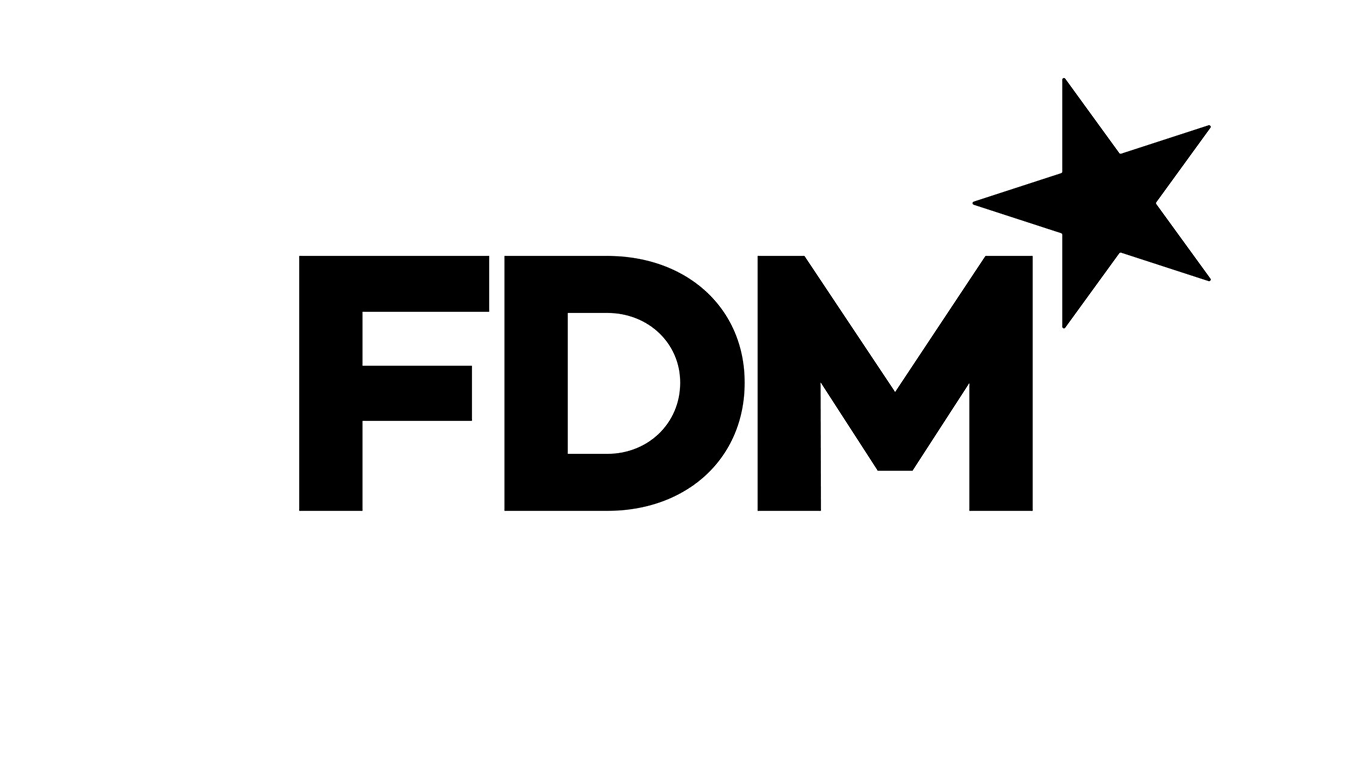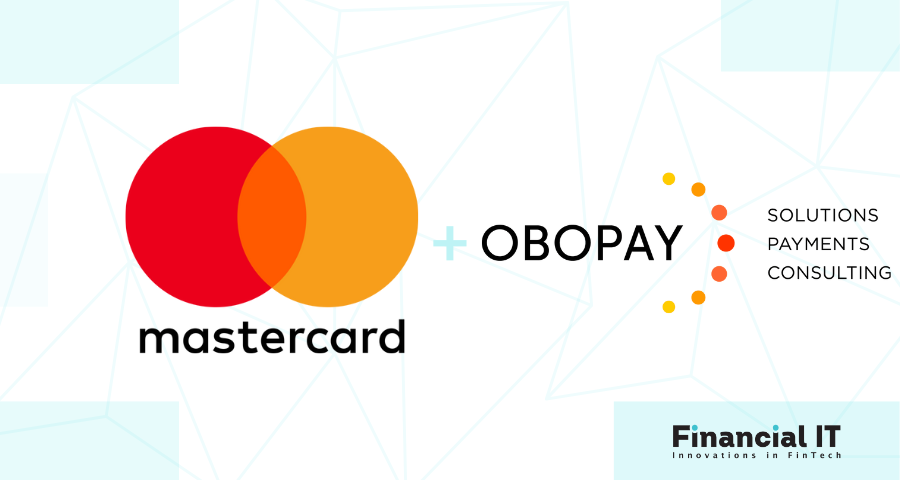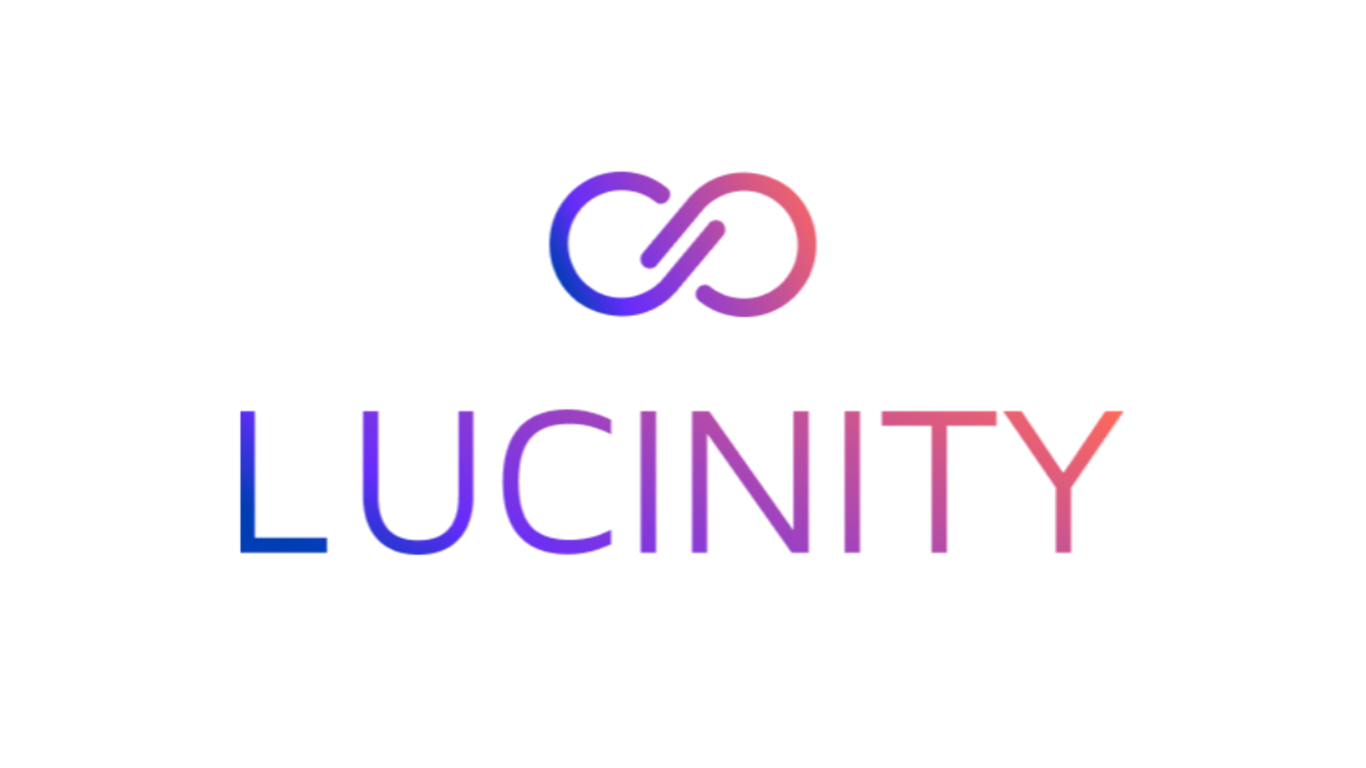Published
- 01:00 am

Phos, the global leader in software point-of-sale (SoftPoS) orchestration for businesses, has partnered with Massachusetts-based Thrive Payments to deploy its Tap-to-Phone solution in the US.
The deal will enable the payment gateway’s merchant customers to accept card payments directly on any NFC-enabled smartphone or tablet, in-store or on the go. This means they can greatly, and rapidly, expand their number of payment acceptance points, without the need to invest in costly additional hardware.
Phos’ ‘Tap-to-Phone’ solution uses state-of-the-art technology for secure transactions through a mobile device. The user-friendly design allows for the quick, easy and contactless processing of payments, bringing added convenience to businesses and consumers alike.
Over half of American adults now regularly use at least one form of contactless payment, according to a recent survey. This change in consumer behaviours is prompting merchants to review their payment processing capabilities in response.
In bringing a Tap-to-Phone solution to market, Thrive Payments becomes one of the early adopters of the technology in the US. The merchant services provider is committed to providing its business customers with solutions that expand their payment acceptance offerings and aid in maximising their success.
Now that the partnership is in place, Thrive Payments and phos will begin the process of deploying the Tap-to-Phone solution and making it available to its merchant customers across the country.
Brad Hyett, CEO of phos, said: “Thrive Payments is at the heart of merchant processing in the US. They harness innovative hardware and software solutions to deliver the best payment experience possible for customers. Our partnership is a significant step forward in our shared mission to bring secure, contactless payments on mobile to businesses across North America and Latin America. It will allow us to reach more US merchants than ever before and collectively drive the adoption of Tap-to-Phone technology on a truly global scale.”
Theodore Keith, Jr, President & CEO at Thrive Payments, added: “We have seen first-hand the growing demand for Tap-to-Pay solutions in recent years and phos has firmly established itself as a leader in this space. With contactless card payments becoming more common in the US, we’re excited to see this timely partnership come to fruition, as we bring a robust and secure mobile card acceptance solution to our merchants.”
Phos currently has 19 certified acquirer connections, as the fintech continues to expand globally. It plans to increase this number exponentially to satisfy the needs of tier-one providers and requirements across international markets. Additional acquiring certifications are currently in progress and will be announced this year.
Its latest partnership with Thrive Payments comes amid growing market interest in SoftPoS and Tap-to-Pay technology, with consumer tech giant Apple now in the process of enabling third-party SoftPoS providers to deploy their technology on iPhone devices.
Related News
- 02:00 am

FDM Group, whose mission is to bring people and technology together, has revealed how the rise of artificial intelligence (AI), and language models such as ChatGPT, are set to change the future of the job market.
AI is quickly becoming one of the most sought-after and extensively used data-driven technologies, with 90 per cent of leading companies already implementing it into their daily operations.
The growth of machine-learning models, such as ChatGPT, has been monumental, with UBS reporting ChatGPT alone accrued a whopping 100 million active users by the first month of the year.
As this growth continues, a wide range of organisations, from small online businesses to governments and large corporations, are embracing AI programmes by implementing and leveraging their capabilities to accelerate business growth.
So, as artificial intelligence rises in popularity and continues to expand its capabilities, how will it impact the future job market?
FDM, comments: “With the rise of ChatGPT and the overall advancement of artificial intelligence technology, AI will undoubtedly revolutionise the future job market, bringing new and exciting opportunities, as well as changes.
“It's up to individuals and organisations to ensure they are prepared for the introduction of AI by staying up to date and equipped with the right skills and knowledge.
“The growth of AI will also bring an increased demand for soft skills for many businesses while introducing entirely new job opportunities - and increased efficiencies.”
FDM reveals how the rise of AI will change the job market:
1. New job opportunities
AI is not just about making existing jobs easier; it is also about creating entirely new opportunities altogether.
From programmers to data scientists, there are a variety of roles surging in demand - with organisations looking for prospective employees who are eager to be part of the rapidly changing technological landscape and the growth that comes with it.
AI requires the skills of software developers, engineers, and data scientists, but it also opens up job opportunities for those without a background in technology. Jobs such as AI-driven medical professionals, financial advisors, and even writers will become commonplace in the near future.
As this technology advances and organisations such as OpenAI expand their offerings, the global AI market is expected to grow by 37% from 2023 to 2030. This means there will be significant demand for professionals with the skill sets to create, maintain, and develop these AI-driven solutions.
2. Increased demand for soft skills
As AI transforms how businesses operate, maintaining strong soft skills will become increasingly important.
Soft skills are all about working together, communicating effectively, and problem-solving. And as AI models such as ChatGPT takes on more of the hard skills (automation, coding, and so on), workers will need to focus on the soft skills that AI can’t replicate.
To be successful, employees will have to not only be knowledgeable of their field, but also have the interpersonal skills to work with others, motivate their colleagues, and lead projects. Companies will need to recognise the value of these skills and prioritise them in their hiring decisions.
3. Automation of tasks
AI has already been used to automate mundane tasks and improve efficiency, and its potential is far-reaching. As the technology advances, it will also create new opportunities for increased efficiency at work, and benefit employees in the process.
This can help reduce the amount of time spent on time-consuming work such as data entry so that employees can focus their efforts on more valuable endeavours. AI can also detect issues and errors, making it easier to spot potential problems and reduce the time spent sieving through large data sets, ultimately saving businesses money and improving their overall customer experience.
For example, in the context of hiring, 38% of companies are already using AI for recruitment, streamlining talent acquisition, and making the recruitment process more efficient and timely.
Additionally, AI can help employees manage workloads more effectively through AI-powered virtual assistants, making sure they stay on task and complete them quickly and efficiently.
4. Match individuals with career paths
The potential of AI to match people with the right career path is vast and exciting. This technology can make finding a job faster, easier, and more productive.
AI-based career-matching algorithms are designed to find jobs that suit individuals based on their experiences, skills, interests, and ambitions - and as this technology continues to develop, it’s likely to become an integral part of the job search process.
These programmes take into account the industry, location, and job type, then evaluate the individual’s talents in relation to job requirements, and the results are presented in the form of career recommendations.
With AI-driven career matching on the rise, the use of AI in job hunting will lead to better career matching for employees and employers.
Are you seeking out new technical skills in your business? Check out FDM’s Technical Services to learn more about acquiring innovative talent.
Related News
- 04:00 am

Finastra, a global provider of financial services software applications and marketplaces, today announced a partnership with Integro Technologies a subsidiary of Aurionpro, the pioneer provider of high-end lending platforms, to offer Integro’s SmartLender Trade Limits solution alongside its own Trade Innovation solution.
Integro’s SmartLender has been successfully helping banks in Asia and the Middle East manage risk in trade finance for over 20 years. With Finastra’s global reach, banks around the world will be now able to combine SmartLender’s advanced exposure risk capabilities with Trade Innovation’s front-to-back capabilities for frictionless trade and supply chain finance.
“Banks are operating in an era of unprecedented uncertainty and are having to manage risk on a global scale. Digitalization is the only way to effectively manage such uncertainty to bring a true understanding of risk,” said Iain MacLennan, Vice President, Trade & Supply Chain Finance, Finastra. “With SmartLender Trade Limits and Trade Innovation in a single offering, not only will banks be able to reap the benefits of end-to-end digitalization, but they will also gain the ability to manage exposure risk throughout the trade finance process. We are excited to offer this new capability to our customers and look forward to future success with Integro.”
"The best of breed capabilities of Trade Innovation, combined with the granular Limits Management capabilities of SmartLender Trade Limits, will give customers a competitive edge to expand and scale their trade and supply chain businesses with effective risk management,” said Mr. Shekhar Mullatti, CEO, Integro Technologies Pte Ltd. “We are excited to partner with Finastra on this journey to enhance digital transformation, accelerate growth, and improve efficiencies in trade processes across the world.”
SmartLender Trade Limits is a comprehensive digital trade limits system that enables exposure risk management at every stage of the trade finance process. With end-to-end centralized processing capabilities and open APIs, SmartLender Trade Limits offers easy and widespread configurability and improves productivity with reduced rates of trade rework and active limit monitoring. The intuitive workflows allow well-supported decision-making with global trade limits structures and limit checking from numerous views, including country risks, industry/sector risks, group and counterparty risks, all from a scalable architecture designed to handle rapid changes to workloads and user demands to ensure business continuity.
Trade Innovation is the best-in-class booking engine with embedded workflow management for working capital finance, covering all aspects of working capital and supply chain finance. The solution provides open connectivity to networks, the creation and management of digital original documents, as well as the automation of compliance and document-checking tasks using AI and machine learning. With front-to-back digitalization of the documentation and processes involved in complex guarantee wording and workflows, Trade Innovation reduces friction in processing and improves turnaround times. Using the solution, banks can accelerate their move to paperless trade, enable greater automation in their operations, and respond quicker to market requirements.
Related News
- 01:00 am

HedgeFlows, a fintech platform for small and medium-sized enterprises (SMEs) launches today following a £2m funding round.
The HedgeFlows platform enables SMEs to seamlessly manage foreign payments, cashflows and invoices, giving ambitious companies access to services which are often denied by the big banks. The company is fully licensed by the Financial Conduct Authority (FCA).
The company was founded by former bankers Alex Axentiev and Neh Thaker. Axentiev has previously overseen emerging markets and currency trading services for international banks and helped numerous multinational corporations manage their international finances. Thaker has held senior executive roles at Bank of America Merrill Lynch and Standard Chartered, including Global Head of Financial Markets with multi-billion dollar revenues and over 1000 employees across 50+ countries.
In a similar way to companies such as Xero and Quickbooks which have revolutionised the accounting market, HedgeFlows aims to empower businesses to better plan and manage their financial needs in any currency.
The Hedgeflows platform helps businesses grow and improve their international trade capabilities to sell across borders. It also automates management of the risks involved in foreign trade such as volatile exchange rates, fraud or hidden costs. The majority of SMEs don't currently have access to the right tools or support to trade internationally in a safe and easy manner in the same way that larger, more established companies do.
Research shows that over 1.5 million SMEs in Europe could benefit from these solutions, saving time, money and unlocking working capital. Managing financial risks and costs better could save European SMEs €60bn according to estimates and represents a Total Addressable Market of €1.5bn per year.
Alex Axentiev, co-founder, HedgeFlows, said:
“SMEs are the lifeblood of the economy, yet so many of these innovative and ambitious businesses struggle to expand into international markets due to a lack of resources. Our platform will change all that, giving fast-growing companies a one-stop solution for accelerating international trade and payments, allowing them to reach their full potential.”
Neh Thaker, co-founder, HedgeFlows, said:
“In challenging economic times, businesses need to be empowered to drive growth. For too long operational and financial barriers have been in place that have stifled entrepreneurs from taking their businesses to the next level. HedgeFlows will change all this, giving a level playing field for scale-ups, so they can enjoy the capabilities previously enjoyed only by a select few enterprise-size businesses.”
Related News
- 09:00 am

Mastercard and Obopay today announced their collaboration to launch a financial inclusion card for smallholder farmers and rural communities. Powered by Mastercard’s Community Pass digital infrastructure, the prepaid card will allow farmers to receive the sale proceeds for their crop digitally, spend their earnings to make purchases even in remote locations that have poor or no connectivity, and build a transaction history based on their income and expenditure to access customized credit options.
The prepaid card will work in tandem with the existing Mastercard Farm Pass platform wherein the farmers will be able to receive payments into their prepaid card account, thereby allowing them to use it to transact at local outlets. Farm Pass is part of Mastercard’s broader Community Pass infrastructure.
While 80% of the rural population has bank accounts, the rural economy still runs on cash due to challenges around digital acceptance, connectivity, and branch banking experience. Prepaid cards have so far seen limited traction in rural areas owing to lack of inflows into the accounts. Digitizing the agriculture value chain can ensure that farmers can use their money to transact at merchant outlets in rural areas. The card solution developed by Mastercard and Obopay is unique as it has the ability to also work offline in remote areas, ensuring rural acceptance of digital payments for buying farm inputs, agriculture equipment, or other essentials.
Obopay will link the online Prepaid cards with offline digital wallets at the backend to ensure a seamless experience for users. This will result in digitization of farmer spend, while leveraging the existing acceptance points of sale in villages and semi-urban areas. By building a digital record of farmers spend and income, the solution will also facilitate customized credit. The card will target smallholder farmers, Self Help Group members, small buyers, traders, along with the adjacent rural ecosystem.
Shailendra Naidu, CEO, Obopay, said, “Digital payments can be a game changer for farmers in today’s technologically driven ecosystem. We are proud to collaborate with Mastercard and develop solutions that will empower farmers in a commercially sustainable way by helping them access online payments and credit.”
The offline wallet feature on the card will enable cash-in-cash-out transactions in non-network areas, making it a particularly relevant solution for farmers in remote areas who lack connectivity or cannot afford data. It will also allow farmers to securely receive and store money in multiple wallets on the card and ensure a consistent user experience across products.
Himanshu Bansal, VP, Digital and Financial Inclusion, Mastercard Community Pass, said, “Farmers in remote areas are often stifled by challenges related to connectivity, data speed, and complexities in using digital platforms. To address these concerns, Mastercard aims to empower them through solutions that are tailored to their needs and ensure transparency in the payments ecosystem. Research has shown that 50% of users who experience transaction failures during their first digital transaction go back to cash. Mastercard is delighted to collaborate with Obopay to digitally empower farmers and eliminate the credit access challenge.”
Mastercard recently achieved the milestone of benefiting over one million smallholder farmers in India through Farm Pass, its scalable rural and agriculture digitization solution. The launch of the digitally integrated financial inclusion card further strengthens the company’s commitment to digitize the rural ecosystem.
Related News
- 05:00 am

Complaints to the Financial Ombudsman Service against Buy Now Pay Later (BNPL) firms have jumped 36% over the last three years, highlighting the need for robust regulation of the BNPL market to boost consumer protections.
Analysis of exclusive figures from the Financial Ombudsman Service by responsible lender, Creditspring, reveals 220 complaints were made against BNPL firms during 2022, compared to 208 in the previous year and 162 in 2020.
The rise in complaints made against BNPL firms to the Financial Ombudsman Service comes as people are increasingly reliant on BNPL and other credit products as households struggle with rising living costs. Although the Financial Ombudsman Service is not yet responsible for BNPL complaints, the fact that people are increasingly contacting the service with issues indicates people have nowhere else to turn.
Data from Equifax shows that over 4.1m shoppers used BNPL products for the first time in 2022 whilst Creditspring’s research reveals that almost a third (29%) of people now use BNPL at least once a month with one in ten (9%) unable to repay the money they owe – rising to 16% for 18-34 year olds.
The Treasury recently announced details of the proposed enforcement powers for the FCA to regulate the BNPL sector as well as an industry consultation.
Incoming regulation is vital to tackle the growing risk of debt many households are facing due to increased reliance on credit and BNPL in particular. However, misconceptions around the risks of using BNPL are also putting financial strain on borrowers – for example, 8m people in the UK wrongly believe that you can’t get into debt from using BNPL.
Worryingly, misconceptions are worse amongst the younger generation who use BNPL products most frequently – over half of 18-34 year olds aren’t aware BNPL can lead to debt, compared to a third of all adults in the UK.
Neil Kadagathur, Co-Founder and CEO of Creditspring, comments: “Rising complaints against BNPL firms indicate the desperate need for strong regulation across the sector. However, given it has taken two years to reach this point, we’re unlikely to see the much-needed consumer protections appear anytime soon.
“Household budgets are set to take a further hit over the next few months with another wave of increased costs from rising water bills to council tax hikes. This will inevitably lead to an even greater reliance on credit products – with BNPL likely to grow in popularity. Borrowers need protection and support now, not in several months or even years’ time when regulation finally kicks in.
“If used correctly, BNPL offers more flexibility to UK shoppers. However, like many credit options, these products are offered or promoted in a way that encourages people to use them recklessly. If people use BNPL for multiple purchases at once, in a couple of months’ time the total repayment amounts due can rapidly spiral out of control. Borrowers urgently need support now so the onus is on lenders to ensure that they’re educating borrowers over credit the risk, protecting borrowers from debt and lending more responsibly with stringent affordability checks.”
BNPL providers can charge users interest as well as late fees for missed payments. For example, Clearpay charges a £6 late fee (which can be charged twice on purchases over £24 but capped at 25% of the order’s cost or £36 - whichever is lower). Similarly, Laybuy also charges a £6 late fee but users can be charged up to four times per purchase – totalling £24.
Creditspring is an FCA-regulated, credit subscription service offering affordable, responsible credit to borrowers. Members pay a fixed membership fee every month to allow them to access two loans per year with clear repayment terms, capped costs and no hidden charges, interest or APRs.
Creditspring’s members also benefit from the platform’s education tools, including its Stability Hub service which offers members a financial health audit and personalised tips to improve their financial situation.
Creditspring recently launched its latest education tool - Spring Score – which provides insight into members’ eligibility for Creditspring products to improve access to financial support tools, such as ‘Step’ credit builder which helps members gradually improve their credit score without running the risk of incurring further debt.
Related News

Sven Lackinger
Co-Founder at Sastrify
Sastrify is a digital procurement platform for Software-as-a-Service products. see more
- 06:00 am

Glasgow-headquartered AutoRek, is today launching its updated brand as part of its ambitious global expansion plans.
Since its founding in 1994, AutoRek has served the financial services sector, providing automated high-volume data reconciliation and finance controls for some of the UK’s largest firms. Processing 2.4bn transactions, it today operates a 35 per cent market share of the UK’s retail banking sector.
The rebrand comes as AutoRek has accelerated its global growth plans over the past year to meet the rapidly rising demand for its financial control and regulatory reporting solutions. The firm has tripled in size since 2020.
With regulators pushing through increasingly complex guidelines, the demand for its solutions is set to rise in the months and years ahead.
The new brand has been developed in order to reflect AutoRek’s ongoing innovation and its growing global presence while maintaining its heritage and history. This repositioning of AutoRek’s brand will enable it to expand its global presence and continue to move further into new growth sectors, such as the payments industry, in which it has recently begun operating.
While AutoRek has reached a position as a leading partner to over 100 of the UK’s biggest firms, this next step will see it embrace broader global opportunities.
AutoRek’s founder and CEO, Gordon McHarg, comments: “The UK’s fintech scene is thriving but in order to maintain momentum once firms are through the first phase of operations, they must listen to changing market and consumer needs. At a time when technological developments are happening at a faster rate than ever before, anticipating where the market is going next is the only way to stay at the cutting edge. And this rebrand represents AutoRek’s commitment to and belief in the need for continuous innovation.”
With technological innovations accelerating with developments in AI set to transform how businesses operate more in the next five years than it has in the last twenty-five years, businesses must harness an approach that embraces automation to remain at the cutting edge.
McHarg adds: “During periods of economic headwinds, the need to optimize operations rises dramatically. The commercial pressure that businesses are under – as the front end is unable to offer the same rate of growth – requires them to optimize efficiencies at the back end. There are always going to be periods of up and down, as AutoRek has experienced firsthand over the last twenty years and it’s not always possible to predict where the next challenge is coming from. But in order to maintain ambitious growth, brands must be prepared to be flexible and ready to adapt to meet changing market needs.”
Related News
- 08:00 am

Vietnam’s fintech start-up GIMO today has announced the first close of its Series A funding with a US$5.1 million investment led by TNB Aura.
Other investment firms joining the round are returning investors including Integra Partners, Resolution Ventures, Blauwpark Partners, ThinkZone Ventures, and Y Combinator.
GIMO’s latest financing follows a year of remarkable growth. With a solid 24x year-on-year revenue growth and an 11x year-on-year transaction volume increase, the company has delivered one of the favourite financial apps for Vietnamese financially underserved workers.
“The fresh capital will bolster our product innovation that appeals to the underserved workers and drive revenue growth. Our team has been incubating a suite of digital financial solutions and expect to launch in the months to come”, said Quan Nguyen Co-founder and CEO at GIMO.
In 2021, the start-up secured a US$1.9 million Seed extension round and is currently in the process of raising debt capital.
Related News
- 08:00 am

indó, an Icelandic mobile-first advanced neo-bank, has selected Lucinity as its AML compliance software, including its Transaction Monitoring and Case Manager solutions.
Established in 2018, indó is the first neobank to operate in Iceland. It was created to restore faith in the banking system by being open with customers about how their money is used. The company received its Icelandic banking license in February 2022, the first new license issued in more than 30 years, aiming to capitalize on the country’s highly digitalized banking market where 95% of the population uses an electronic ID, banking apps, or digital currencies. It is looking to emulate the success and significant international growth of challenger banks in the UK and Nordics.
The announcement comes during a busy period of expansion in Iceland for Lucinity, which now serves more than a quarter of the Icelandic market after Arion Bank selected Lucinity to provide its AML solutions in November.
Lucinity’s AML platform leverages artificial intelligence (AI) to augment human expertise, allowing compliance teams to make smarter decisions faster and enjoy modernized AML processes. Lucinity’s approach of creating augmented intelligence, combining the best of technology and human insights, has helped various banks and FinTechs increase their compliance productivity by more than 50%.
indó will use Lucinity’s Transaction Monitoring to provide its compliance team with behaviour-based risk screening and explainable artificial intelligence. Transaction Monitoring also enables AML teams to receive a manageable caseload and enjoyable user experience. Lucinity’s Case Manager offers indó contextual data visualizations, resulting in data-driven decision-making and boosting efficiency and productivity.
In selecting Lucinity, indó was looking for a compelling AML solution that could integrate seamlessly into its existing technology and scale along with its rapidly growing customer base.
Haukur Skúlason, CEO of indó says:
“We are a new contender in the banking space, and we were looking for a modern solution that can support our ambition and standards. Lucinity is not merely a vendor but a partner, capable of matching our tech stack and agile way of working. Lucinity also understands our priorities, including our zero-tolerance policy for money laundering.”
Guðdmundur Kristjánsson, Founder & CEO of Lucinity, says:
“We are excited to be partnering with indó to help them realize their mission of restoring trust and regaining transparency in the banking industry in Iceland and beyond.”









